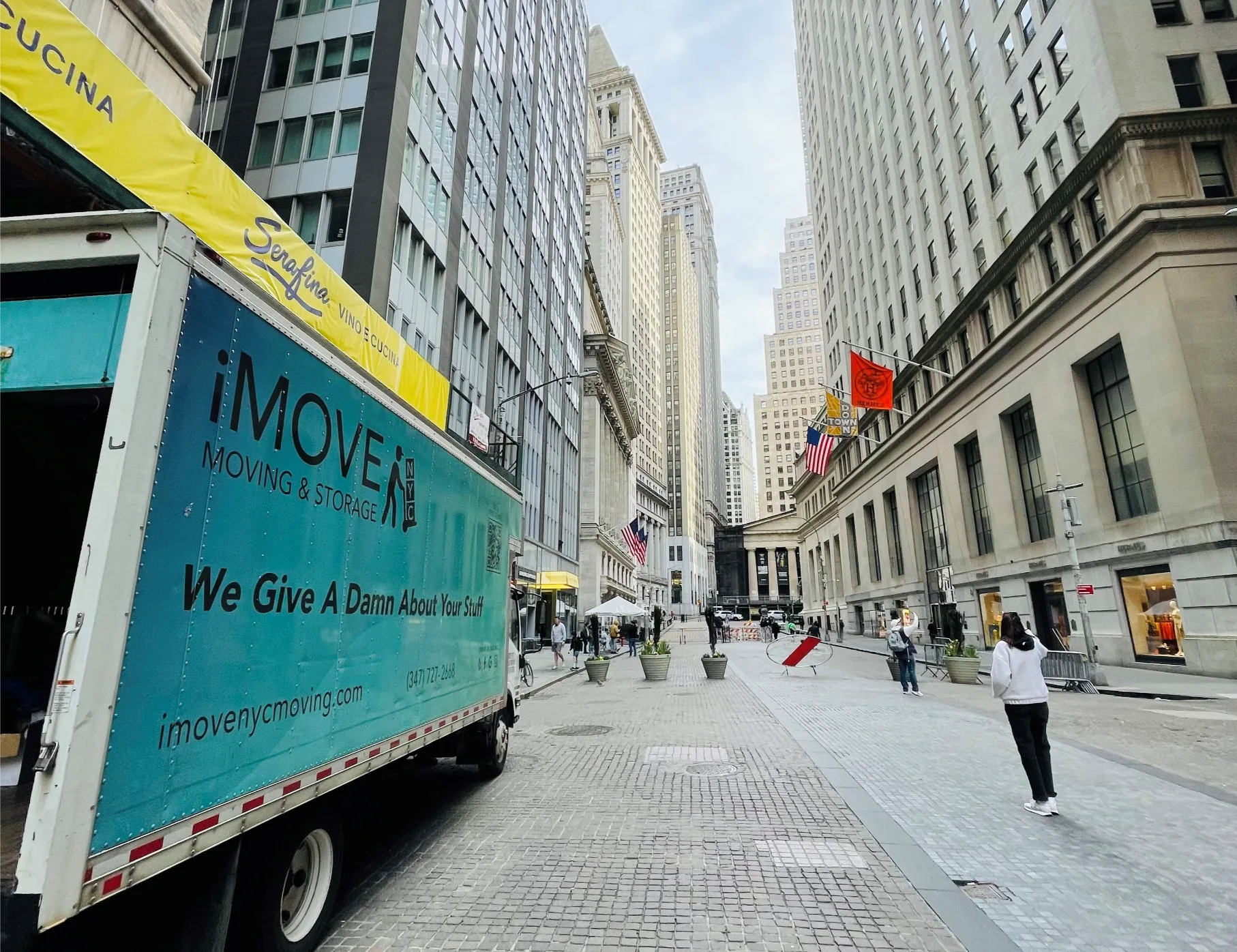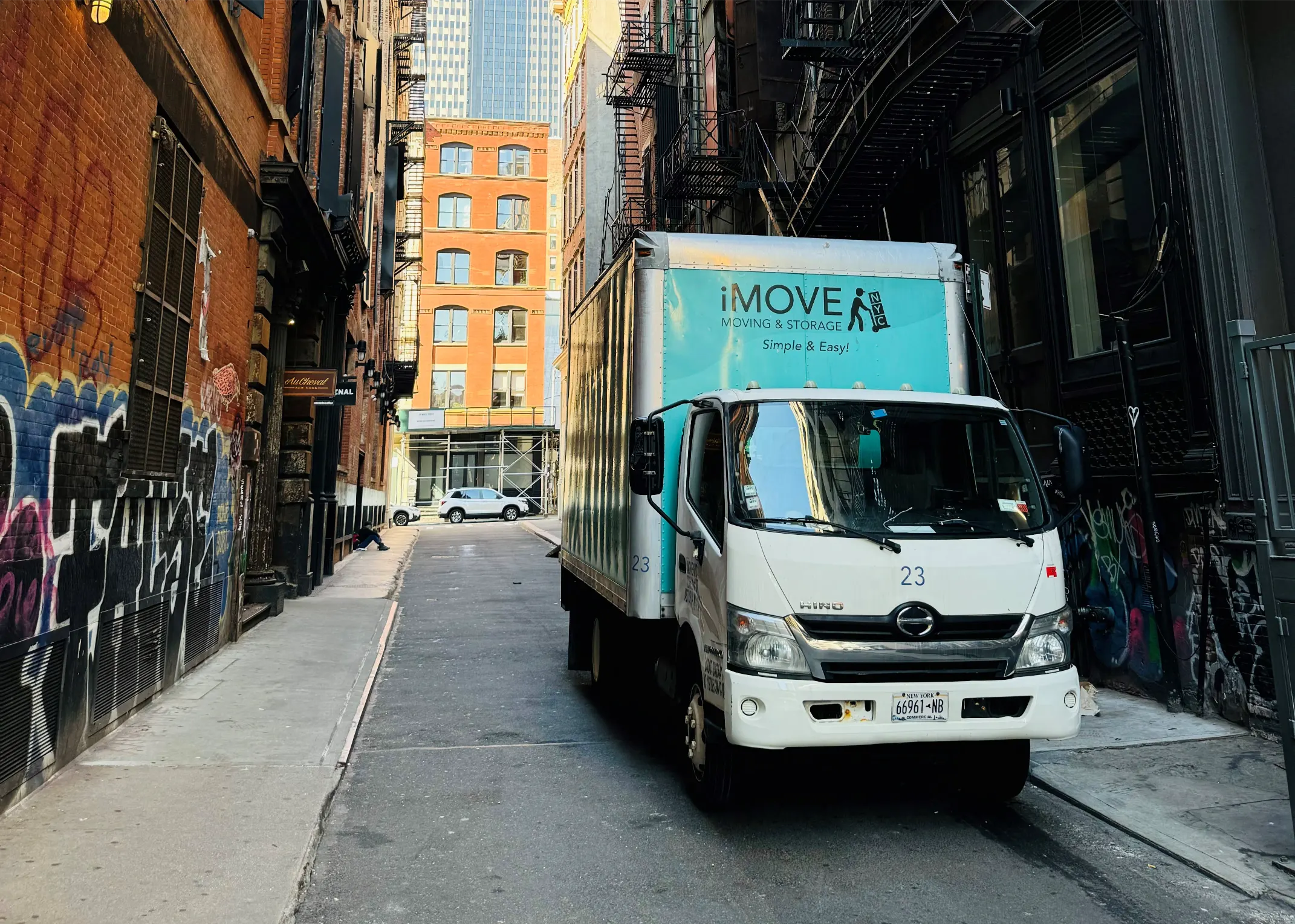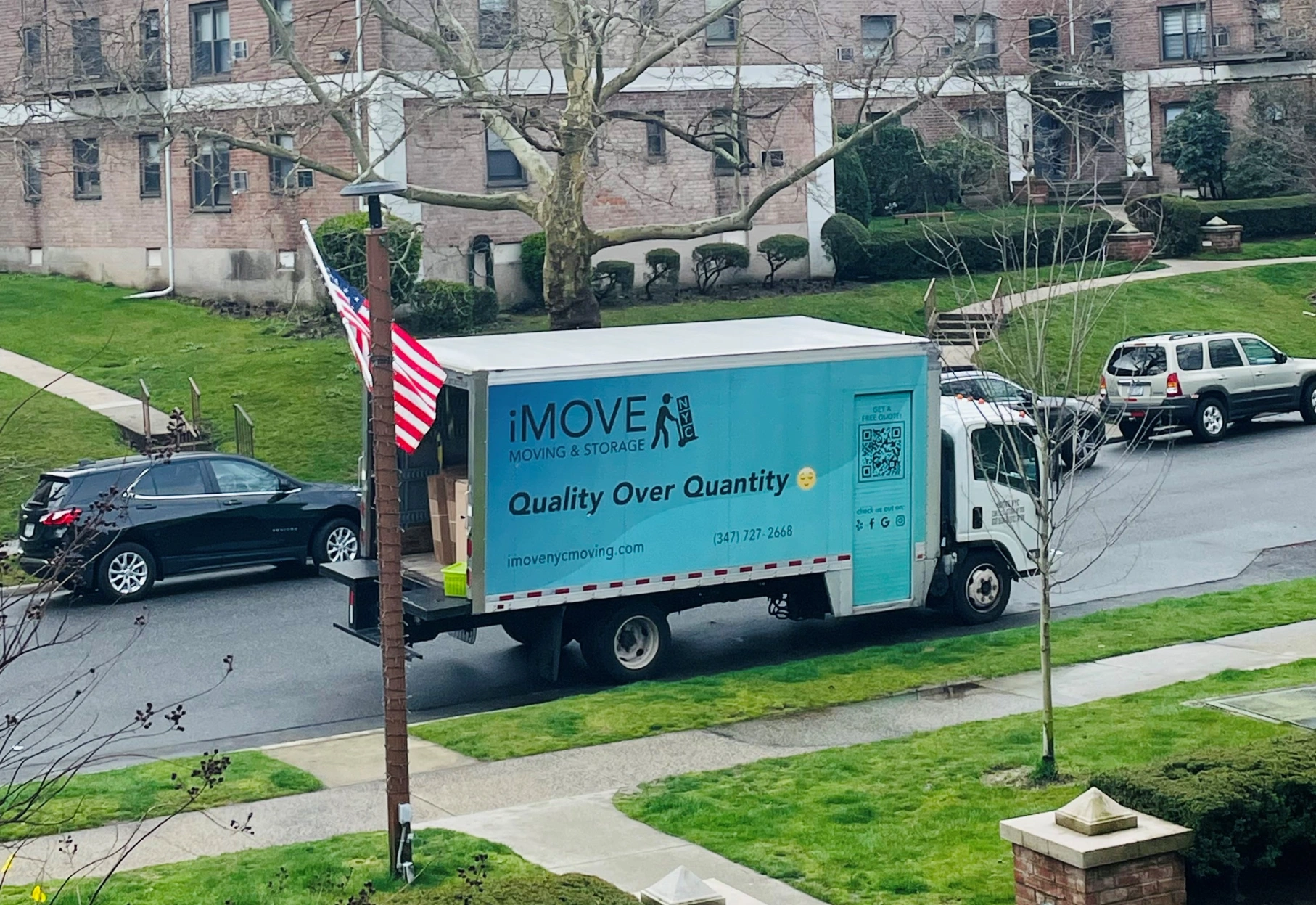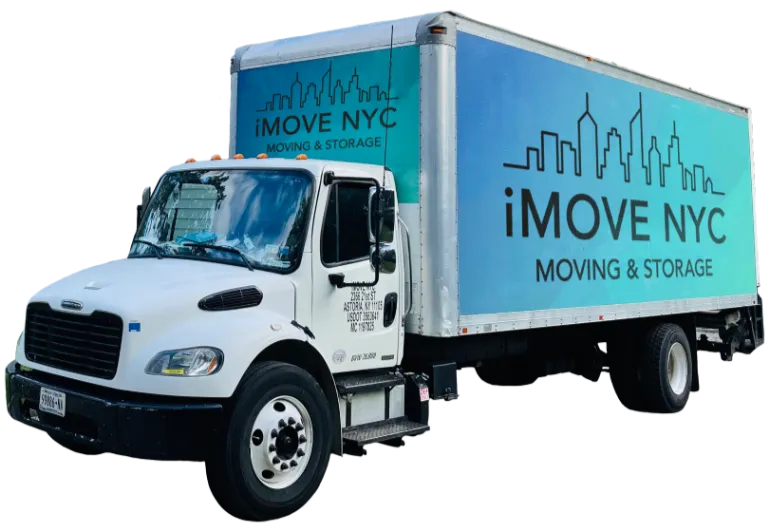
Moving to NYC as a Student in 2025: The Complete Parents’ Guide
New York City stands as one of the most exhilarating and enriching destinations for students – both from across the U.S. and around the globe.
Fill out the form below for a quick flat price quote
Picture this: You’ve just signed a lease for your dream Brooklyn apartment or a sleek Queens condo. You’ve budgeted for rent, security deposits, and even the broker fee. But then, a week before moving day, your landlord hits you with additional costs, and suddenly, your moving budget is blown.
Welcome to the world of move-in and move-out fees and costs – the often-overlooked expenses that NYC renters and condo owners encounter during relocations. These fees are charges imposed by landlords, co-op boards, or property managers to cover expenses tied to your move, like elevator reservations, security staffing, or building repairs.
Why should you care? Because in NYC, ignoring these charges is like ignoring a parking ticket – it’ll cost you later. For example:
These fees aren’t just about money – they’re about control. Buildings use them to manage logistics (like avoiding 2 a.m. moves) and protect shared spaces. But without understanding them upfront, you could face surprise bills, delayed move dates, or even lease violations.
Move-in fees are non-refundable charges landlords or property managers impose to cover costs associated with preparing a unit for a new tenant. Unlike security deposits, which are meant to protect against damage or unpaid rent, move-in fees are strictly for expenses like administrative tasks, minor repairs, or building logistics. For example, your landlord might use this fee to repaint walls, replace worn-out carpeting, or rekey locks after the previous tenant moves out. In NYC, where turnover is high and buildings are tightly regulated, these fees help landlords offset the constant flow of tenants in and out of their properties.
The catch? These fees are non-refundable, meaning you won’t see that money again – even if you leave the apartment in perfect condition. While they’re not required by law, they’re increasingly common in competitive rental markets like Manhattan or Long Island City, where landlords have more leverage.
Move-in fees typically range from 20% to 50% of your monthly rent, though this can vary by landlord and location.
As of March 2025, the average rent in New York, NY is $3,895 per month, which means move-in fees could range anywhere from $779 (20%) to $1,948 (50%). For a lower-end example, if your rent is $2,500 per month, your move-in fee might be $500 to $1,250. On the higher end, if you’re renting a $5,000-per-month apartment, fees could climb to $1,000 to $2,500.
The good news? These fees are often negotiable – especially if you have strong credit, a steady income, or if the unit doesn’t need repairs or upgrades. Always ask whether the landlord is willing to reduce or waive the fee. It never hurts to negotiate!
It’s easy to confuse move-in fees with security deposits, but they serve entirely different purposes. A security deposit (capped at one month’s rent in NYC) is refundable and legally protected. Landlords must return it within 14 days of your lease ending, minus deductions for damages beyond normal wear and tear. For instance, if you accidentally crack a bathroom tile, your landlord can deduct repair costs from your deposit – but they can’t charge you extra for repainting walls unless you caused excessive damage.
Move-in fees, on the other hand, are upfront costs that landlords keep regardless of how you leave the apartment. While security deposits are tightly regulated by New York State law, move-in fees are not, giving landlords more flexibility – and renters more reason to scrutinize their leases.
There are no laws prohibiting landlords from imposing both a move-in fee and a security deposit. However, charging both can deter potential tenants, as the combined upfront cost may create financial strain and make the rental less competitive in the market.
Beyond move-in fees, there are several other costs you should be aware of before signing a lease. Always ask about these potential charges to avoid any surprises.
Before signing a lease, always ask for a full breakdown of fees to avoid unexpected costs. Some fees, like amenity or cleaning fees, may be negotiable—so it never hurts to ask!
Move-out fees are non-refundable charges that landlords impose when a tenant vacates a rental unit. These fees often cover the costs of preparing the apartment for the next tenant, such as cleaning, minor repairs, and administrative expenses. Unlike security deposits – which can be refunded if the unit is left in good condition – move-out fees are not returned to tenants, regardless of how well they maintained the property.
Move-out fees are a common source of disputes between landlords and tenants, particularly when tenants feel they are being unfairly charged. While landlords have the right to impose these fees, they must be clearly outlined in the lease agreement for them to be legally binding.
Yes, move-out fees are legal in NYC, but they must meet certain conditions to be enforceable:
If your lease does not mention a move-out fee, your landlord cannot legally charge one. Always review your lease agreement carefully before signing, and ask questions upfront about any potential exit costs.
Not all costs associated with moving out are considered move-out fees. Below is a breakdown of fees landlords may charge versus costs tenants may face when moving.
These are fees that landlords or property managers may charge as part of the lease agreement:
These are costs tenants may face when relocating:
Navigating the move-in and move-out process in NYC can be overwhelming, especially with all the unexpected fees and hidden costs that landlords may impose. The key to protecting yourself? Know your lease, ask the right questions, and prepare in advance.
Whether you’re moving into a new apartment or preparing to vacate your current one, understanding your financial obligations can save you from last-minute surprises. Always review your lease carefully, negotiate where possible, and document everything to avoid unnecessary charges.
At iMOVE NYC, we specialize in making your moving experience simple, stress-free, and cost-effective. From handling logistics and packing to coordinating with building management on elevator reservations and move-in requirements, we take care of every detail so you don’t have to.
When you partner with iMOVE NYC, you get:
Moving in NYC doesn’t have to be a headache. Let iMOVE NYC handle the heavy lifting – literally and figuratively! Contact us today and let’s get you moving with ease.

New York City stands as one of the most exhilarating and enriching destinations for students – both from across the U.S. and around the globe.

If you want to understand New York, don’t start with its skyline or even its neighborhoods. Start with its bridges.

One of the most important – and overlooked – questions on moving day isn’t just “where are you going?” but rather, “what are you bringing?”

Fill out the form below for a quick flat price quote
Fill out the form below for a quick flat price quote
Let’s make your move Simple & Easy!